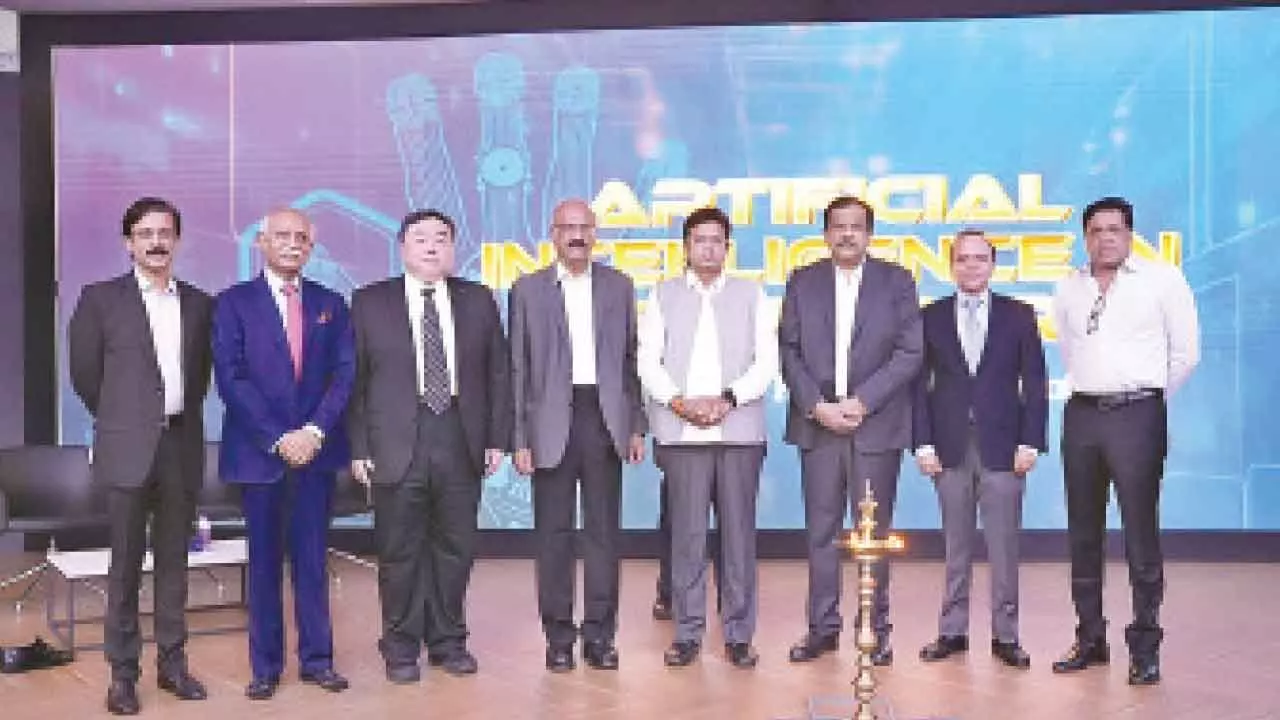Adopt AI tools for early detection of GI cancers: Medical expert

Hyderabad: With the growing incidence of gastrointestinal cancers such as oesophageal, stomach and colorectal in India, a leading international medical expert underlined the importance of using artificial intelligence for early detection and accurate diagnosis of the disease to avoid surgeries and improve the life span of patients.
At present, most of GI cancers are detected at an advanced stage requiring surgery and chemotherapy, observed Dr Prateek Sharma, Professor of Medicine, Division of Gastroenterology/Hepatology, The University of Kansas Medical Center, USA and President-elect of the American Society for Gastrointestinal Endoscopy (ASGE).
Dr. Sharma, who is in the city to attend a summit on “Artificial Intelligence in Healthcare” at the Asian Institute of Gastroenterology (AIG), said in an interview, “If you diagnose early by using AI, these cancers can be removed endoscopically”. He pointed out that it would not only help in avoiding surgery but reduce the cost, and improve the patient’s life span and the quality of life.
Emphasizing the importance of a healthy lifestyle and diet, he said consuming less veggies, fresh fruits, and cereals, among others and eating more fast food, processed food and also lack of exercise were some of the reasons for the growing incidence of GI cancers
Listing out other advantages of using AI in healthcare, Dr Sharma said it would enable physicians in rural areas to provide better healthcare. Digital technology and telemedicine would help improve access to healthcare in remote and rural areas.
A physician doing a procedure in a rural area could seek the guidance of an expert through telemedicine, he added.
On the pitfalls of using AI in healthcare, he said there were concerns regarding data security and patient privacy and emphasized the need to protect them. “There can be biases in AI algorithm”, he added and pointed out that an algorithm developed based on US data might not apply to India. There is a need to develop AI algorithms that are specific to the Indian context and come up with local solutions to the diseases prevalent in India rather than depending on the AI tools developed in the USA or Europe.
In the wake of an increase in GI cancers in the country, Dr. Sharma said screening of people aged 50 years and above should be undertaken for early detection.
Earlier addressing the delegates attending the summit, Dr. D. Nageshwar Reddy, Chairman and Chief of Gastroenterology, AIG Hospitals, said the practice of medicine would be revolutionized by artificial intelligence in the coming years. He also announced that AIG hospitals have introduced the concept of “Green Endoscopy” as part of efforts to reduce carbon footprint. He said that the healthcare industry was the 5th largest emitter of greenhouse gases worldwide and GI endoscopy was the third largest emitter in healthcare.
Inaugurating the Summit, Telangana Minister for IT and Industries, D. Sridhar Babu announced that a working committee on the use of AI would be constituted to frame guidelines, protect data, and prevent harm. He also said that the government would focus on digitization and creation of Electronic Medical Records from primary health care level to tertiary care.








